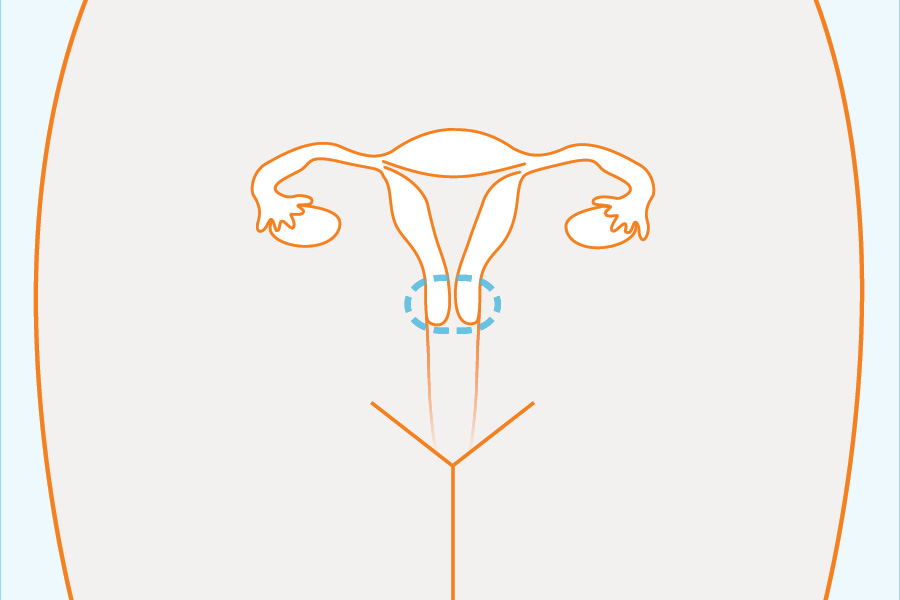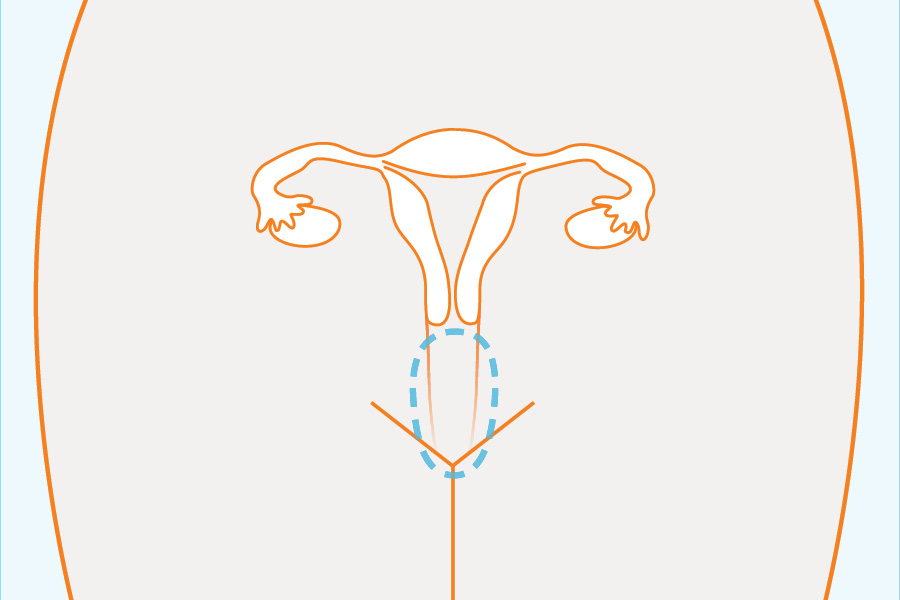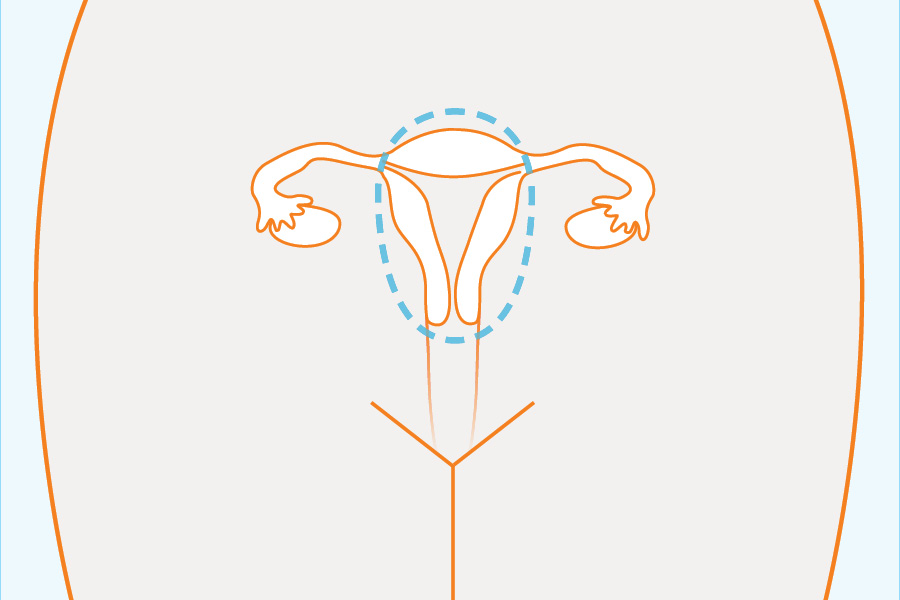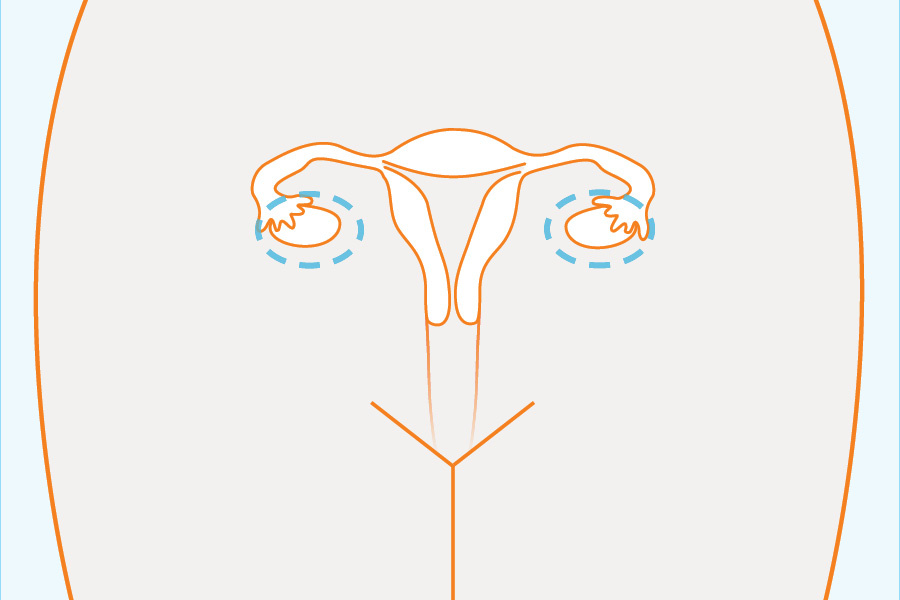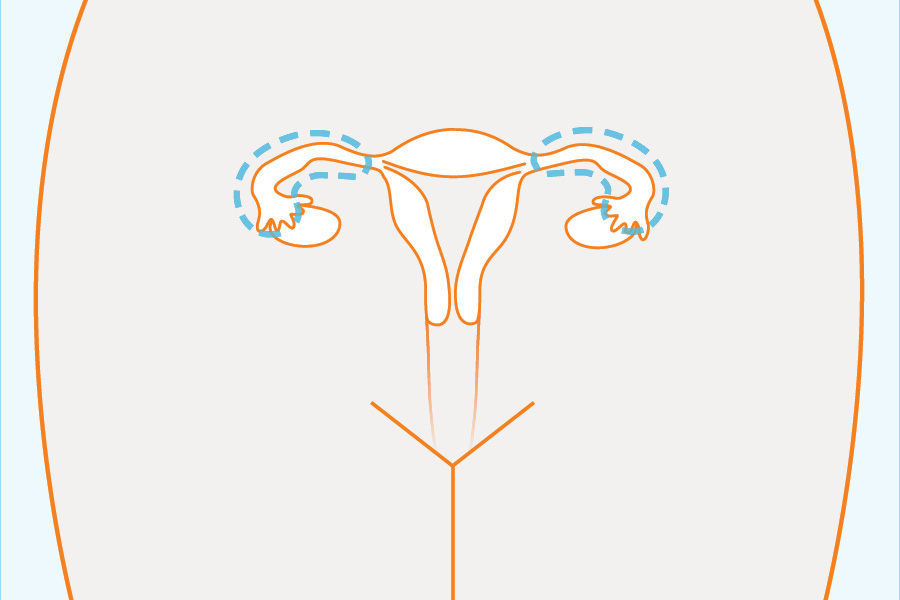The Basics
What is herpes?
Herpes is a sexually transmitted infection caused by a virus called the herpes simplex virus (HSV).
There are two types of herpes simplex virus: herpes simplex virus 1 (HSV-1) and herpes simplex virus 2 (HSV-2). HSV-1 usually infects your mouth (called "oral herpes"), but can be passed to the genitals through oral sex. HSV-2 usually infects the area around your genitals (penis, vagina, or anus - called "genital herpes"), but can be passed to the mouth during oral sex.
How common is herpes?
At least 50 million people in the U.S. have genital herpes. It is more common in females than males.
Where does herpes live?
The virus lives in the cells in your body. It is not always active, but when the virus is active you will be infectious. You can be infectious and not have symptoms, or you can be infectious and have visible sores or blisters (this is usually called a "herpes outbreak").
If you have a herpes outbreak, the virus also lives in the sores or blisters. You can have outbreaks in the following places:
In females:
In males:
- On or near the penis
In males and females:
- Lips
- Mouth
- Throat
- Anus
- Rectum (tube leading down to the anus from the intestines)
This page was last fact checked October 19, 2014.
Symptoms and Disease
If I have herpes, will I develop symptoms?
Many people with genital herpes have little or no symptoms. Because of this, a lot of people with herpes do not know that they are infected.
What are the symptoms of herpes?
Herpes can cause many symptoms. The easiest to notice are painful sores or blisters that occur on your mouth ("oral herpes") or near your anus, penis, or vagina (called "genital herpes"). Sores and blisters usually heal within two to four weeks. In some people, these sores can come and go about four or five times a year. The first outbreak is usually the longest and most severe.
Other symptoms for both males and females are:
- Itching, burning, or tingling at the site where blisters or sores will appear
- Inability to urinate
- Pain in affected area
- Swollen glands (swelling or tenderness near on you neck, armpits, or groin)
- Severe flu-like symptoms such as fever or body aches
How quickly do the symptoms of herpes develop?
Symptoms can appear 2 to 20 days after infection, but may take as long as months or years to develop. Many people who have herpes never have noticeable symptoms.
What can happen if I don't get treated for herpes?
For females:
- Pregnant females can pass genital herpes to her baby during childbirth
For both males and females:
- Frequent outbreaks
- You have a higher chance of getting an HIV infection if you have unprotected sex with a partner living with HIV
- You might spread the herpes to other areas of your body
- Rarely, a herpes infection can lead to more serious health issues such as aseptic meningitis (infection of tissues around the brain and spinal cord), encephalitis (swelling of the lower spinal cord), and widespread infection of the liver, lungs, and joints
Transmission
How is herpes spread?
While oral herpes can cause genital herpes and genital herpes can cause oral herpes, it is more common for oral herpes to be passed orally and genital herpes to be passed genitally.
Genital herpes can be spread:
- during vaginal sex (both partners)
- during anal sex (both partners)
- from direct genital contact
- from mother to child during birth
- during oral sex (from someone's genitals to another person's mouth), this is rare
Most people who get oral herpes get it during childhood. Oral herpes can be spread through:
- kissing
- oral sex (from someone's mouth to another person's genital or anus)
Herpes is spread when the infected partner has an outbreak, but can also occur even if they are not having one. No ejaculation or transfer of bodily fluids (like blood, saliva, or vaginal secretions) needs to occur for the virus to spread. Brief skin to skin contact is all that is needed to pass the virus.
How can I prevent getting herpes?
Genital herpes: If you choose to have sex, using latex condoms, female condoms, or a dental dam will reduce your risk of getting herpes.
Don't touch the sores. Touching any type of herpes sore may spread the virus from one partner to another or from one part of the body to another, especially during initial herpes.
Oral herpes: You can reduce your risk of getting oral herpes by not kissing your partner or performing oral sex on ("giving a blow job" or "eating out") your partner while he or she has an outbreak. Using male condoms and dental dams when you perform oral sex will reduce your risk, but you can still get the virus from sores not completely covered by the condom.
If I have herpes, how can I prevent giving it to someone else?
Genital herpes: If you have an outbreak of sores, avoid touching sores during an outbreak, and wash your hands if you do touch them. Do not engage in sexual contact during an outbreak.
Herpes medication can prevent you from spreading herpes.Ask a doctor or other healthcare professional for more information on medication and treatment options.
Oral herpes: You can reduce the chance that you spread oral herpes by not kissing or giving oral sex when you have sores. If you have an outbreak of sores, avoid touching sores during an outbreak, and wash your hands if you do touch them.
Both genital and oral herpes can be spread even when you aren't having an outbreak. They are most likely to be transmitted during or just before an outbreak.
Can I still infect other people with herpes if I don't have symptoms?
Yes, you can infect others when you aren't having an outbreak or any other symptoms.
Am I more infectious with herpes at certain times?
You are most likely to spread herpes if you have an outbreak (sores or blisters) and just before and after you have an outbreak. Herpes is most contagious when sores are open, moist, or leaking fluid, until the scabs heal and fall off.
Tests, Results, & Treatment
How long do I have to wait to get tested for herpes?
If you have sores or blisters, a viral culture or swab test should be done within 48 hours after you get them.
If you don't have sores or blisters but think you might have herpes, you should probably wait to get tested until 12-16 weeks after you were exposed. This gives your body time to produce enough antibodies (material the human body makes in response to a herpes infection) for the test to be able to work.
How do you test for herpes?
Viral culture: If you have sores or blisters, a swab is taken from a sore and grown in the lab. If you have an outbreak it is important to get to a clinic to get tested as soon as you can.
Visual diagnosis: If you have sores or blisters, a doctor or other healthcare provider might try to diagnose herpes just by looking at a sore. This is not the recommended way to test for herpes.
Antibody test: If you don't have sores or blisters, or if they have already healed, an antibody test should be done. For this test, a doctor or other healthcare professional uses blood from a vein or a finger stick to look for antibodies that your body would produce to help fight a genital herpes infection. These tests can sometimes determine whether an infection is type 1, type 2, or both.
Where can I get tested for herpes?
You can get tested at a doctor's office. You can also go to a clinic that tests for herpes. See our Test Page to get more information and search for clinics near you.
Is herpes curable?
No. Herpes is not curable, but it is treatable. There is medication available that can reduce the number and severity of outbreaks. The medication can also reduce your risk of spreading it to others.
What is the treatment for herpes?
There are three medications that can be taken for genital herpes. They are called acyclovir, famciclovir, and valacyclovir.
Treatment of genital herpes can help sores heal faster and reduce your risk of spreading the virus. Medicines can be taken during an outbreak or when you feel one coming on. If you have outbreaks a lot of the time, they can also be taken daily to decrease the outbreaks.
Over the counter creams and/or ointments are not recommended for genital herpes since they can interfere with the healing process in a number of ways, causing the genital outbreaks to last longer. Keeping the area clean and dry as possible can help speed the healing process.
Can I use medication I already have to treat herpes?
For your first outbreak, you need to get new medication from a doctor or other healthcare professional. For all other outbreaks, you can use that medication as long as it is not expired. You can check the expiration date on the prescription.
Always make sure you have extra medication on hand. The quicker you start the medication when you feel an outbreak coming, the better it will work.
Can I share my herpes medication with my partner?
No. Your partner needs to get their own medication from a doctor or other healthcare professional.
Do I need to do anything after I'm cured for herpes?
Herpes cannot be cured. Even if an outbreak of sores goes away, you still have the virus in your body and can spread it to others.
Partner Notification
Should I notify my partner(s) if I have herpes?
Herpes is complicated, so it depends on when you had sex with them. We recommend that you notify your current partners, as long as you feel feel safe doing so, especially if you have visible sores or blisters. For past and future partners, it is hard to find a straightforward answer to this question. Our best recommendations are below.
Who should I notify if I have herpes?
There are no official rules for this. People will have different opinions on who you should notify. Here is what we suggest:
Past Partners: If you 100% know who you got it from, we recommend that you tell them. If you are not sure who you got it from, it becomes complicated. This is because it can take years to develop the symptoms of herpes, so it's hard to figure out who infected you. Also, because most people do not show symptoms and it is hard to test for the virus without sores, there isn't much that they can do once you've told them. Those who are most at risk are people that you had sex with right before or during an outbreak.
Current Partners: If you have just been diagnosed with herpes or currently have sores or blisters, we recommend that you tell your current partners. We also suggest that you tell people that you had sex with right before your herpes outbreak. Telling your current partners is important even if you don't have symptoms anymore. This is because you are probably shedding the virus (which means, live virus is on the surface of your skin and other infected areas- this can happen even if you don't have symptoms), and you are most likely to spread herpes when you are shedding the virus.
Future Partners: We suggest that you tell your future partners that you have herpes. Even if you don't have symptoms anymore, you can still be infectious. You can have the virus on your skin or in your reproductive system without visible herpes sores or blisters. Once you tell your partners, you can both decide how you want to protect yourselves. Also since people can usually tell when they are about to have an outbreak (you might feel an itching or tingling in the area), let your future partners know if you feel another outbreak coming on.
That's a lot of people to notify. Which of my partners is most at risk for herpes?
We recommend that you tell anyone you had sex with when you actually had sores on your body or at the time you were diagnosed with herpes.

